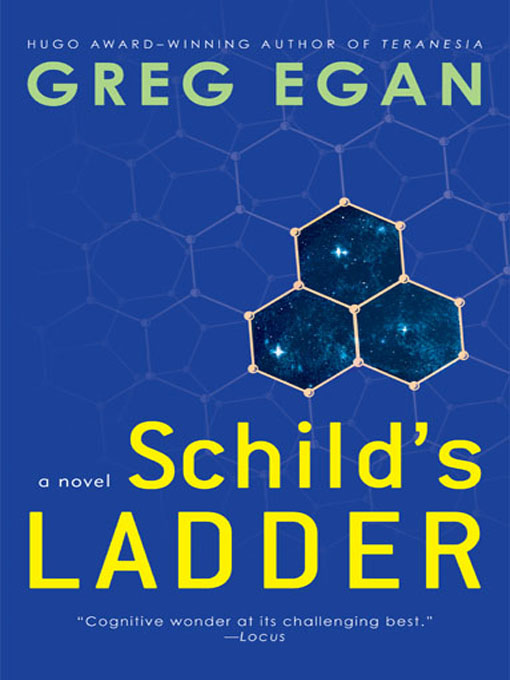
Schild's Ladder
کتاب های مرتبط
- اطلاعات
- نقد و بررسی
- دیدگاه کاربران
نقد و بررسی

March 11, 2002
Australian Egan (Teranesia) writes some of the hardest SF around in terms both of difficulty and cutting-edge scientific content, as shown in his latest challenging novel, set some 20,000 years in the future. Though superhuman by our standards, Egan's characters—often disembodied intelligences who prefer to live as programs in virtual reality or in still stranger, high-tech media—are still capable of making mistakes. At the start, an experiment in quantum physics goes badly astray, creating another universe with physical laws that differ from our own. Its border expanding at half the speed of light, this new universe swallows planetary systems whole. Fortunately, humanity is so highly developed that entire populations can be quickly evacuated with little if any loss of life. Soon the scientific community divides into two groups, those who would destroy the new universe, and those who would study it. The debate becomes even more tense when evidence of life is found behind the rapidly expanding border. Characters invariably speak the language of quantum physics fluently, and the author makes little effort to bring their discussion down to the layman's level. Not until the end, when scientists begin to explore the new universe, does Egan make any real attempt to engage the reader's senses or emotions. The pleasures of this impressive novel, although considerable, are almost entirely intellectual. (May 8)Forecast:Winner of a Hugo and a John W. Campbell award, Egan tried to counteract his reputation for leaving out emotion and sense impressions by developing appealing characters and place in his last novel,
Teranesia. But his return to "coolness" may limit his appeal largely to quantum physicists who read SF.

























دیدگاه کاربران